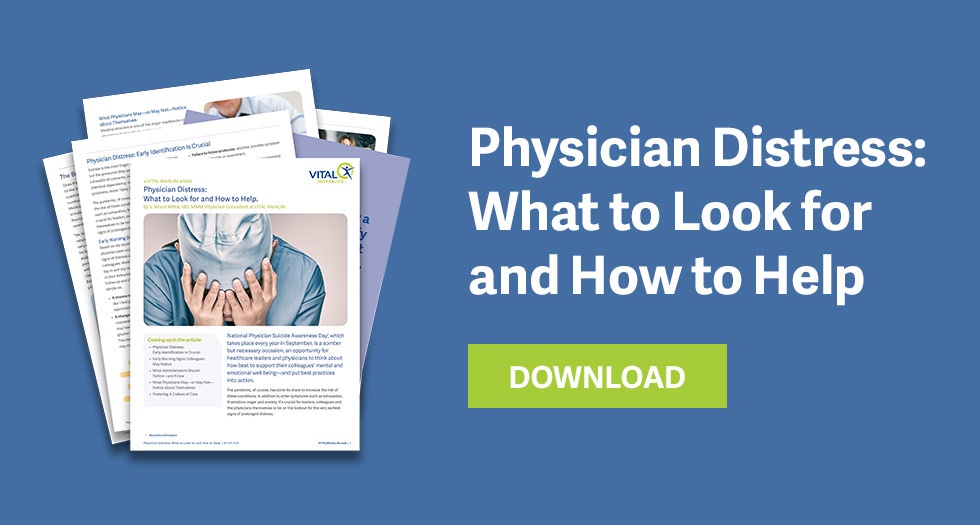One of the most effective ways to head off burnout, compassion fatigue, chemical dependency and other distressing conditions among your medical colleagues is simply to be alert, and aware of, the very early signs that something may be wrong. Our article Physician Distress: What to Look for and How to Help gives guidance on how to recognize early signs of physician distress and solutions to address them.
 Consider the scenario where you notice warning signs that your colleague may be struggling with depression, stress, or any of the other difficult conditions that practicing medicine can trigger. What do you do? What do you say?
Consider the scenario where you notice warning signs that your colleague may be struggling with depression, stress, or any of the other difficult conditions that practicing medicine can trigger. What do you do? What do you say?
Here are some cogent suggestions:
Initially, a casual approach works best. “Mike, I’ve noticed you don’t seem quite like yourself these days. I was just wondering if anything’s wrong and if I could give you some help and support.”
In bringing up the issue of seeking help with a colleague, you need to be careful and tactful. Choose words that may motivate him or her that their seeking care will help others too. “As physicians, it’s hard to seek help, even when we need it, don’t you agree?”
“Taking care of yourself isn’t selfish. You deserve to take care of yourself.”
“Seeking help for your own problems can help improve the care you give to your patients.”
Let your colleague know they’re not alone. “Most physicians feel stressed, burned out, or depressed at some point.”
“Practicing medicine today is tough. A lot of physicians feel burned out, and it’s really important you seek out care.”
“I’ve talked to somebody about my own problems before, and it really helped me feel better.”
Address their probable concerns about cost, confidentiality, license issues and availability of help. “The Well Being Resources our organization offers from VITAL WorkLife are free and easily accessible through the mobile app or by phone.”
“The program is confidential. No one will know you’ve used it unless you tell them.”
“Their behavioral health professionals are capable of diagnosing, but that’s not a part of the work you do, so this is not something you have to report to the board when you’re getting your license renewed.”
“They have peer coaches you can talk to on the phone who really get the issues we’re facing in medicine today.”
Your willingness to help, and your tactful, informed approach, might well head off a crisis for your colleague. It could even be life-saving. Read more in our article Physician Distress: What to Look for and How to Help.



